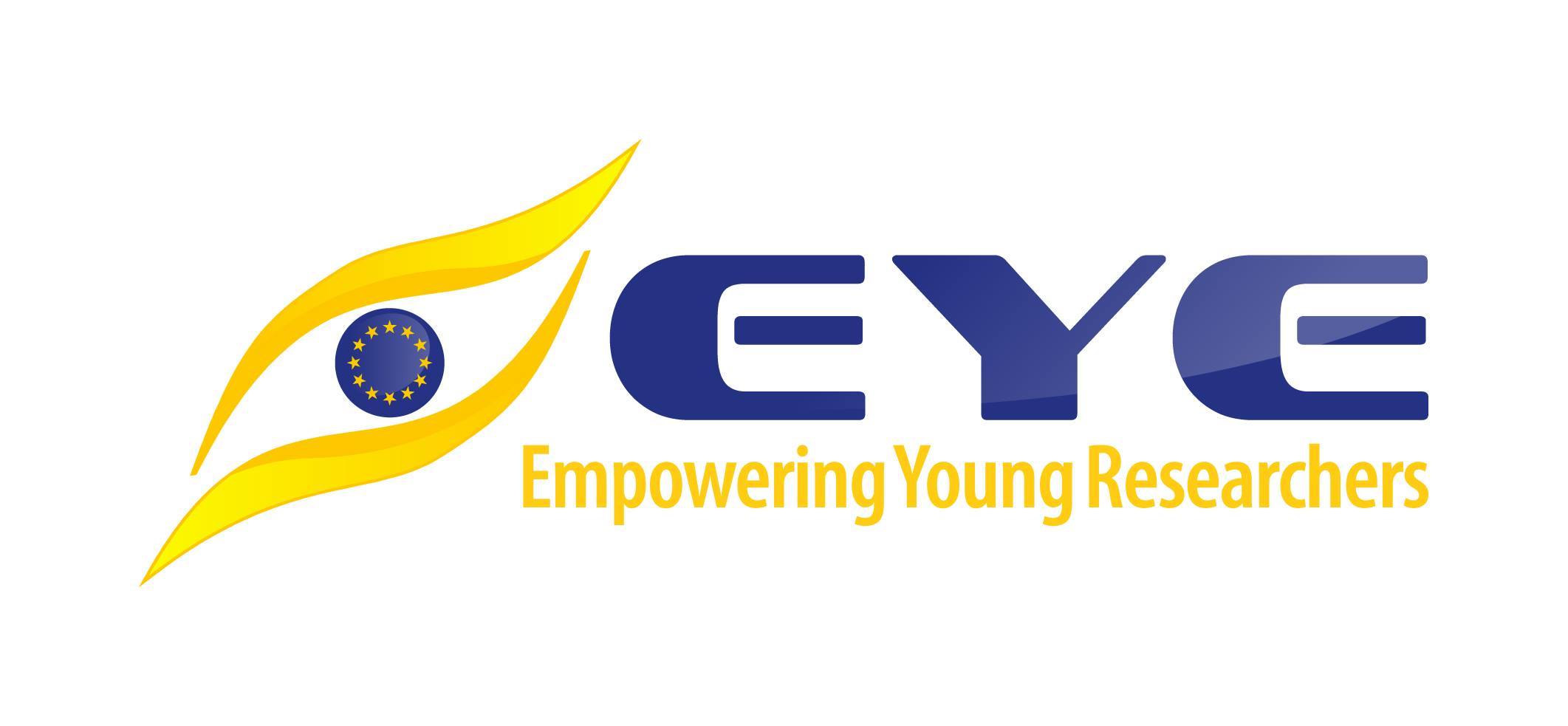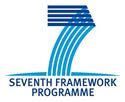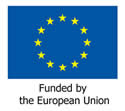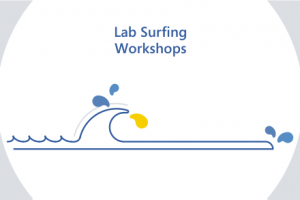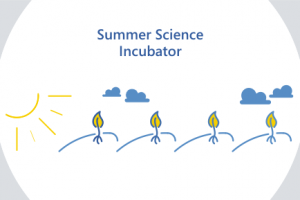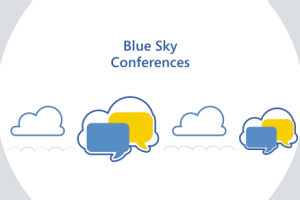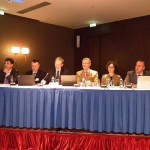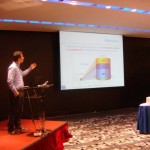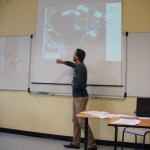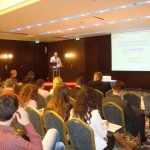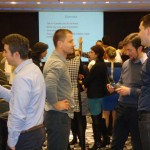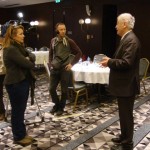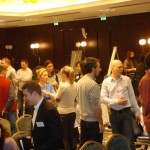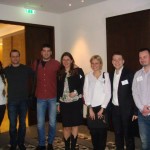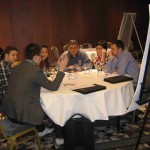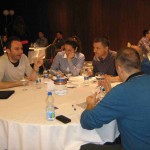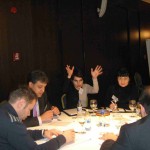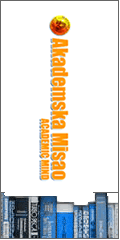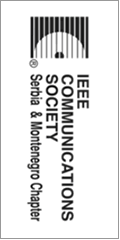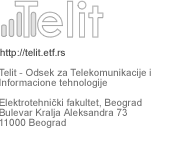EYE
Empowering Young Explorers (EYE) was a support project for future and emerging technologies funded under the EU’s 7th Framework Programme.
The aim of EYE was to help young European researchers in a range of scientific disciplines to realize their scientific potential in future and emerging technologies (FET) and to contribute to breakthrough research. The project encouraged the generation of high risk scientific ideas through brainstorming and interdisciplinary collaboration between young researchers. EYE also supported the development of young scientists´ leadership potential via networking and training.
Starting in November 2013, the project supported a series of complementary regional and European brainstorming and training events for young scientists involved in FET – quality research, such as seminars, conferences and summer schools. Young researchers were invited to take part in two cycles of EYE events and competitions.
Specifically, EYE focused on
(a) S&T ideas of higher risk nature that can be generated through ideation and brainstorming and
(b) collaboration between YRs across various disciplines and from different parts of Europe, and
(c) on the YRs themselves, by developing their leadership potential through networking and training in the specific methods used in European collaborative projects.
EYE partners
The EYE project was coordinated by the Technical University of Delft. Ten partners, including six universities, two research institutions and two small and medium enterprises (SMEs) from 9 European countries, have joined forces to achieve the goals of EYE. The partners will establish a network of local collaborators in 38 countries across Europe that promoted the EYE activities locally among young researchers. Europlan UK was the originator of the EYE project idea and the important player responsible for communication and coordination of multiple activities pursued by the partners.
Who are young researchers?
The EYE project supported young researchers interested or already involved in high risk FET-quality multi/interdisciplinary research enabled by information and communication technology (ICT). A young researcher is a holder of a PhD degree awarded at least six years prior to participation in EYE activities and events. Why is EYE important for young researchers?
Young researchers working in future and emerging technologies (FET) are critical to the success of strategically important areas of science and technology in Europe. However, to realize their full potential as individuals and as a collective resource, they need to optimize their capacity and capability to generate and realize breakthrough ideas and research. The aim of the EYE project is to build a lasting European community of high potential young researchers (YRs) that are able to generate radical new ideas and build research collaborations in interdisciplinary areas, EYE will help them to develop their research potential and their ability to develop new curricula for FET.
Lab Surfing Workshops
Lab surfing workshops were regional brainstorming and networking events organized in different parts of Europe. These regional workshops offered young researchers a unique opportunity to learn about the most advanced FET research, brainstorm about future research areas and jointly elaborate new high risk scientific ideas, partner with their peers, and also develop scientific administration and leadership skills.
The first LS workshop brought together researchers from Belgium, Ireland, Luxemburg, the Netherlands and the United Kingdom.
Lab Surfing workshop @ Belgrade
Smart, green and efficient was the overarching theme of the Lab Surfing workshop held in Belgrade on 11 and 12 March 2014. The two-day event gathered 46 young researchers from Bosnia and Herzegovina, Croatia, FYR of Macedonia, Montenegro, Serbia and Slovenia to brainstorm research ideas, make connections and build their capacity and knowledge with and from their peers. In the course of the workshop organized by the University of Belgrade, School of Electrical Engineering as the EYE Regional Coordinator with the Support of Europlan-UK, young researchers worked with each other to generate new multidisciplinary ideas of FET quality. They began by sharing their backgrounds and research interests which ranged from smart materials, smart cities, smart sensors and smart power to green technology and eco-friendly systems to impact of ICT on the society of tomorrow to future healthcare. The outcome from the brainstorming sessions was the formation of research project teams looking at smart materials, smart cities, smart sensors, smart power, ecology – thinking green, ICT and society of tomorrow. The program included three keynote presentations addressing smart sustainable cities; smart distribution and transmission grids; and the development of smarter, greener and more efficient solutions for enhancing and saving lives. As part of the program, the young researchers were given five training sessions: brainstorming methodology to support innovation; skilfull project preparation, including the presentation of a scientific concept, implementation, and impact and technical documentation; ethical issues in scientific research; as well as on the effective use of the EYE NOVA platform for research collaboration.
European “Blue Sky” conference for young researchers
Regional teams of young researchers with the most promising ideas were invited to attend a “Blue Sky” Conference where they could further consolidate collaborative research ideas and network more widely at a European level.
Science Incubator summer school
The teams with strongest took part in the “Science Incubator” Summer School. This four-day intensive training event helped the selected teams of young researchers to bring their ideas to a level from which substantive FET project proposals can be presented for participation in Horizon 2020. Special attention was paid to the transformation of ideas generated by young researchers into specific project proposals.
More on FP7 EYE project:
Key goals and activities, Interview with Stephan Pascall, Managing Director, Europlan UK

